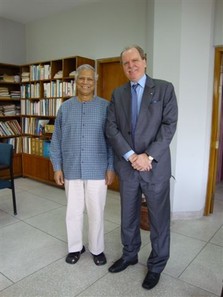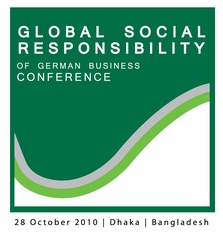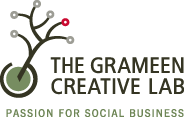Social Business - a new Business idea from Bangladesh
- Ayrıntılar
 Following the successful concept of collateral-free micro credit a new, innovative and forward-looking business idea with potentially high impact on poverty alleviation is emerging from Bangladesh: "Social Business".
Following the successful concept of collateral-free micro credit a new, innovative and forward-looking business idea with potentially high impact on poverty alleviation is emerging from Bangladesh: "Social Business".
The "Social Business" concept developed by Nobel Peace Price Laureate and Managing Director of Grameen Bank Prof. Muhammad Yunus has the purpose to achieve a maximum of social benefit through the production of affordable but high-quality products and services adapted to the low purchasing power of poor people.
Social Business is a non-loss, non-dividend company with a social objective. All the net profits remain within the company for further expansion and reach. The investor will get the principal amount back, but nothing beyond that.
A company operating as a "Social Business" needs to work profitably in order to cover emerging costs and to invest its earnings in the expansion of the business. In this way, their products become accessible for the poor.
Cooperation of the Grameen Group with international companies such as BASF or Danone show that the model can work and that it also helps international companies to adapt their business strategies to the needs of markets with low purchasing power.
In November 2010 the "Global Social Business Summit" will take place at Wolfsburg, Germany. This Summit will become a regular event and will provide an international forum for information and exchange of ideas on Social Business.
For more information on Social Business, please contact the Yunus Centre:
GSR conference 2010: program details [pdf, 147.65k]






 On 28 October 2010 the Bangladesh German Chamber of Commerce and Industry in cooperation with the German Embassy and the Deutsche Gesellschaft für Technische Zusammenarbeit (GTZ) held a conference on "Global Social Responsibility" in Dhaka.
On 28 October 2010 the Bangladesh German Chamber of Commerce and Industry in cooperation with the German Embassy and the Deutsche Gesellschaft für Technische Zusammenarbeit (GTZ) held a conference on "Global Social Responsibility" in Dhaka. "By defining entrepreneurship in a broader way we can change the character of capitalism radically" -
"By defining entrepreneurship in a broader way we can change the character of capitalism radically" - 


